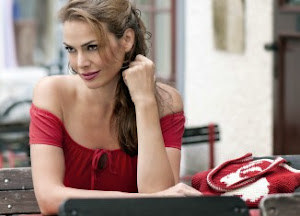The rest of his body was so streaked, and spotted, and marbled with the same shrouded hue, that, in the end, he had gained his distinctive appellation of the White Whale; a name, indeed, literally justified by his vivid aspect, when seen gliding at high noon through a dark blue sea, leaving a milky-way wake of creamy foam, all spangled with golden gleamings.
Nor was it his unwonted magnitude, nor his remarkable hue, nor yet his deformed lower jaw, that so much invested the whale with natural terror, as that unexampled, intelligent malignity which, according to specific accounts, he had over and over again evinced in his assaults. More than all, his treacherous retreats struck more of dismay than perhaps aught else. For, when swimming before his exulting pursuers, with every apparent symptom of alarm, he had several times been known to turn round suddenly, and, bearing down upon them, either stave their boats to splinters, or drive them back in consternation to their ship.
Already several fatalities had attended his chase. But though similar disasters, however little bruited ashore, were by no means unusual in the fishery; yet, in most instances, such seemed the White Whale's infernal aforethought of ferocity, that every dismembering or death that he caused, was not wholly regarded as having been inflicted by an unintelligent agent.
Judge, then, to what pitches of inflamed, distracted fury the minds of his more desperate hunters were impelled, when amid the chips of chewed boats, and the sinking limbs of torn comrades, they swam out of the white curds of the whale's direful wrath into the serene, exasperating sunlight, that smiled on, as if at a birth or a bridal.
His three boats stove around him, and oars and men both whirling in the eddies; one captain, seizing the line-knife from his broken prow, had dashed at the whale, as an Arkansas duellist at his foe, blindly seeking with a six inch blade to reach the fathom-deep life of the whale. That captain was Ahab. And then it was, that suddenly sweeping his sickle-shaped lower jaw beneath him, Moby Dick had reaped away Ahab's leg, as a mower a blade of grass in the field. No turbaned Turk, no hired Venetian or Malay, could have smote him with more seeming malice. Small reason was there to doubt, then, that ever since that almost fatal encounter, Ahab had cherished a wild vindictiveness against the whale, all the more fell for that in his frantic morbidness he at last came to identify with him, not only all his bodily woes, but all his intellectual and spiritual exasperations. The White Whale swam before him as the monomaniac incarnation of all those malicious agencies which some deep men feel eating in them, till they are left living on with half a heart and half a lung. That intangible malignity which has been from the beginning; to whose dominion even the modern Christians ascribe one-half of the worlds; which the ancient Ophites of the east reverenced in their statue devil;—Ahab did not fall down and worship it like them; but deliriously transferring its idea to the abhorred white whale, he pitted himself, all mutilated, against it. All that most maddens and torments; all that stirs up the lees of things; all truth with malice in it; all that cracks the sinews and cakes the brain; all the subtle demonisms of life and thought; all evil, to crazy Ahab, were visibly personified, and made practically assailable in Moby Dick. He piled upon the whale's white hump the sum of all the general rage and hate felt by his whole race from Adam down; and then, as if his chest had been a mortar, he burst his hot heart's shell upon it.
It is not probable that this monomania in him took its instant rise at the precise time of his bodily dismemberment. Then, in darting at the monster, knife in hand, he had but given loose to a sudden, passionate, corporal animosity; and when he received the stroke that tore him, he probably but felt the agonizing bodily laceration, but nothing more. Yet, when by this collision forced to turn towards home, and for long months of days and weeks, Ahab and anguish lay stretched together in one hammock, rounding in mid winter that dreary, howling Patagonian Cape; then it was, that his torn body and gashed soul bled into one another; and so interfusing, made him mad. That it was only then, on the homeward voyage, after the encounter, that the final monomania seized him, seems all but certain from the fact that, at intervals during the passage, he was a raving lunatic; and, though unlimbed of a leg, yet such vital strength yet lurked in his Egyptian chest, and was moreover intensified by his delirium, that his mates were forced to lace him fast, even there, as he sailed, raving in his hammock. In a strait-jacket, he swung to the mad rockings of the gales. And, when running into more sufferable latitudes, the ship, with mild stun'sails spread, floated across the tranquil tropics, and, to all appearances, the old man's delirium seemed left behind him with the Cape Horn swells, and he came forth from his dark den into the blessed light and air; even then, when he bore that firm, collected front, however pale, and issued his calm orders once again; and his mates thanked God the direful madness was now gone; even then, Ahab, in his hidden self, raved on. Human madness is oftentimes a cunning and most feline thing. When you think it fled, it may have but become transfigured into some still subtler form. Ahab's full lunacy subsided not, but deepeningly contracted; like the unabated Hudson, when that noble Northman flows narrowly, but unfathomably through the Highland gorge. But, as in his narrow-flowing monomania, not one jot of Ahab's broad madness had been left behind; so in that broad madness, not one jot of his great natural intellect had perished. That before living agent, now became the living instrument. If such a furious trope may stand, his special lunacy stormed his general sanity, and carried it, and turned all its concentred cannon upon its own mad mark; so that far from having lost his strength, Ahab, to that one end, did now possess a thousand fold more potency than ever he had sanely brought to bear upon any one reasonable object.







